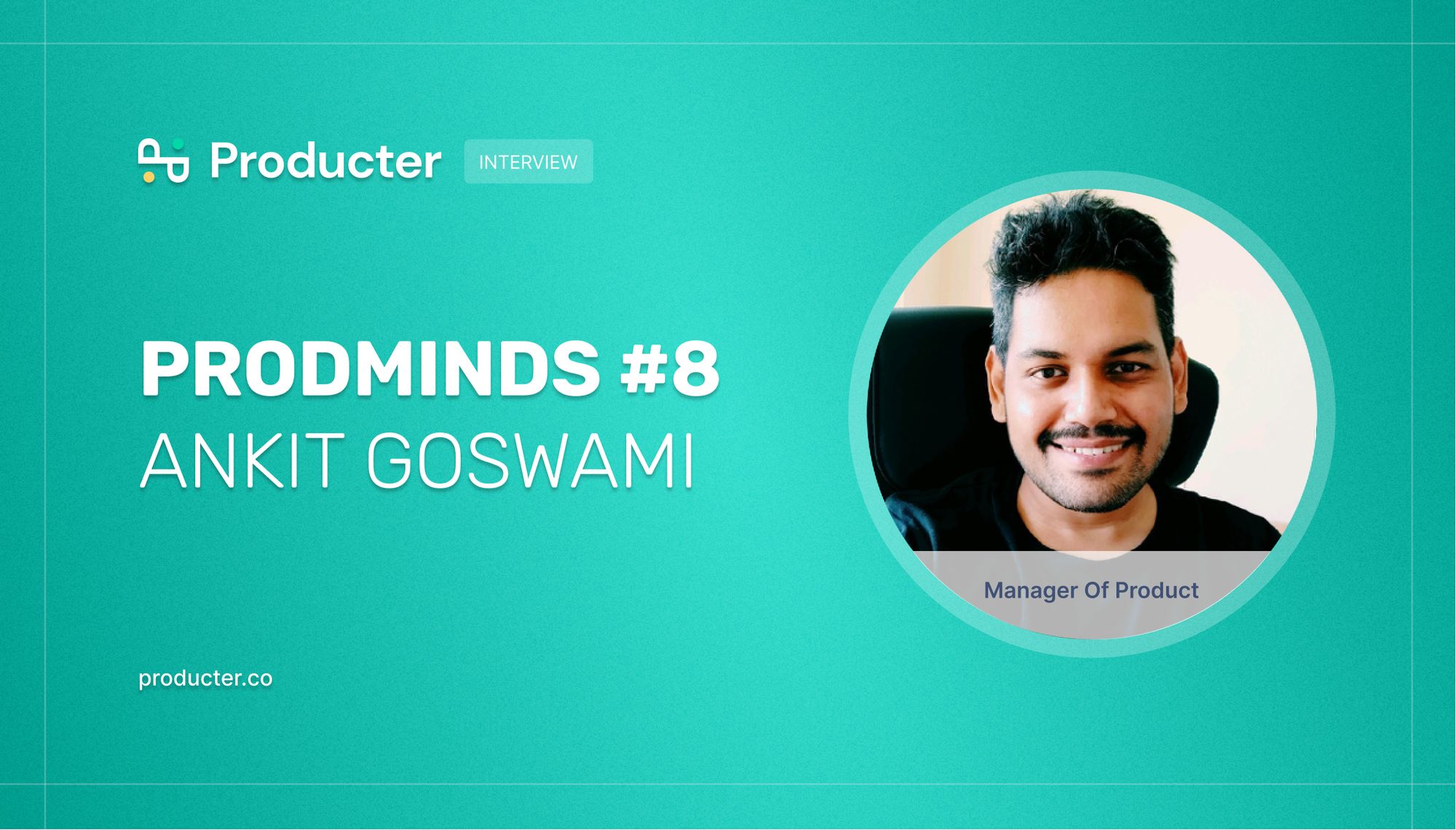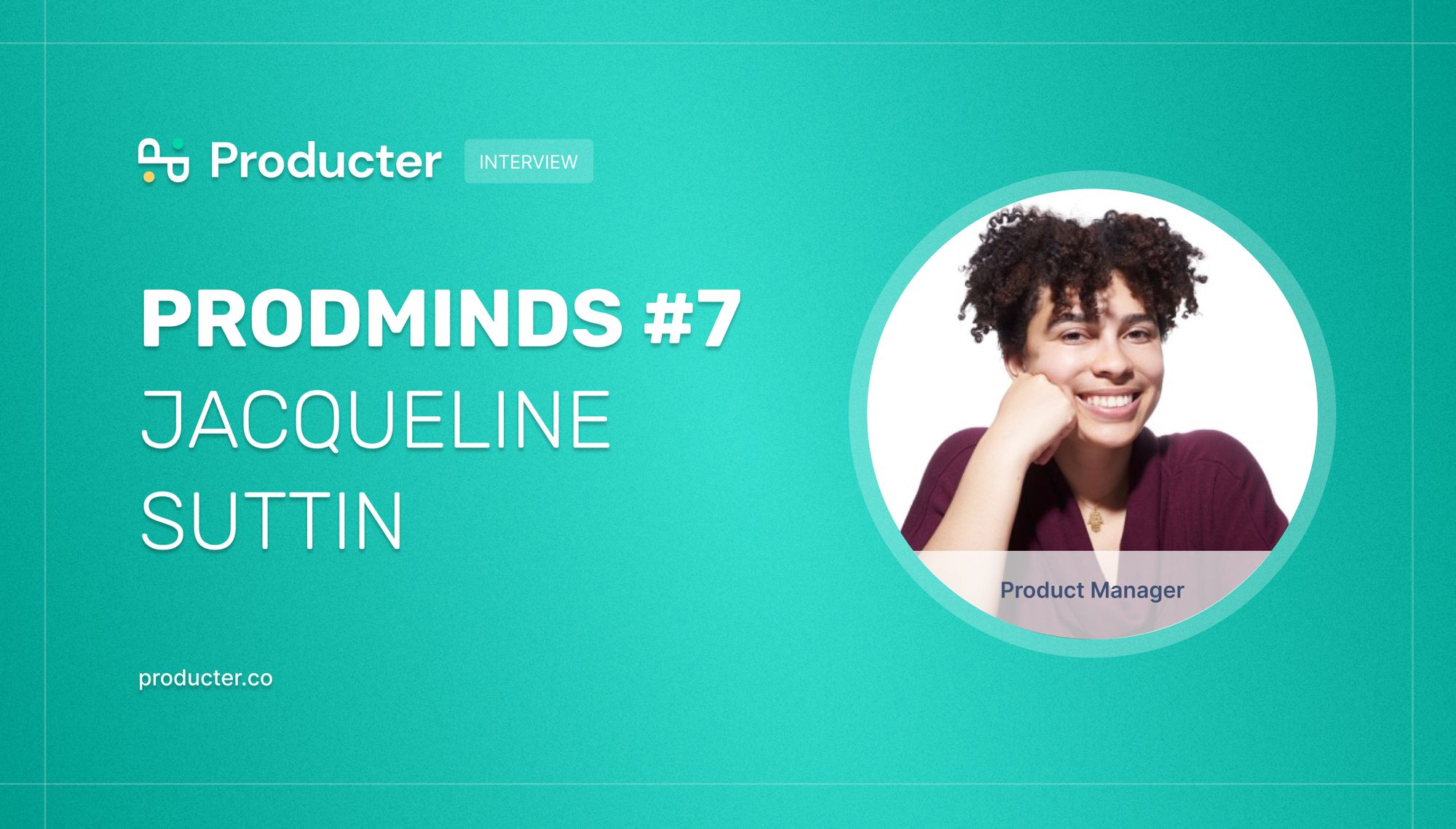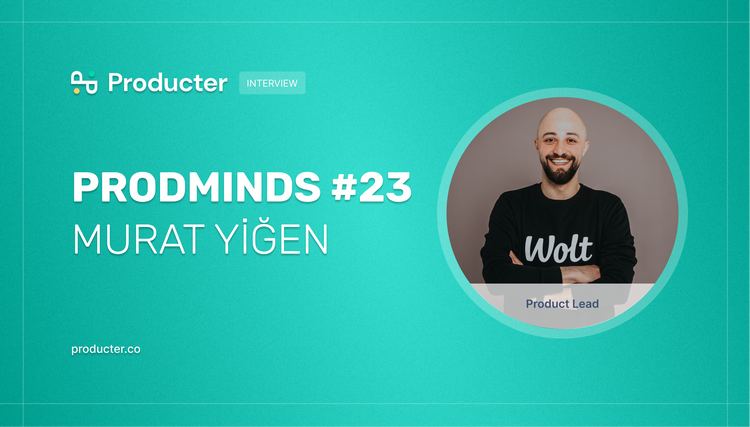Team Producter: Would you tell us a bit about you and your career path in product management?
Hi, I am Vivek, a product leader by profession and an avid traveler by passion. I’ve close to 9 years of experience building both B2C and B2B products in domains such as IoT, Mobility, SaaS, Edtech & HR-Tech.
My career path in product management was not a very straightforward path. Like everyone else, the ride was a bit bumpy with a lot of twists. My first exposure to product mgmt was when I got a chance to intern at Microsoft during my MBA as a Program Manager Intern. This experience triggered my interest in product management. Unfortunately, after my MBA I did not get a role in the product (product mgmt wasn’t trending those days, so very minimum opportunities were available) and I ended up in a strategy role in the Technology Sensing/Planning team at Samsung. I used to research the trending technologies and create a 3-5 year roadmap. After this, I experimented in different roles such as Strategic Partnerships, Open Innovation, Business Development & Ecosystem Evangelism for the next 2-3 years where I got a chance to talk to a lot of founders, build a few prototypes as a pseudo-PM, speak at multiple events, head a business sub-committee & more.
Later, when I came to know that there was an internal training planned on product mgmt, I was the first one to apply. And when I learned that a new product mgmt team was being formed, I was again the first one to submit interest. All the different roles I tried and the skills/experience I gained along the way helped me in creating a solid pitch for the PM role backed by some good recommendations from my managers and I finally got in.
So one piece of advice I always give to all Aspiring Product Managers is to have a goal and work towards it. Whether it is becoming a product manager or working at your dream company, you’ll have to make your way towards it. Explore all the opportunities that come towards you and pick up learnings along the way.
Team Producter: Which part of being a Lead Product Manager is the most challenging for you?
As we move up in the product magamet ladder, the responsibilities change from being tactical to strategic. We get to own a bigger piece of the roadmap and are more involved in the business strategy which requires closely working with the leadership and the customers. Coming to the most challenging part, I feel it’s people management since you are not just focusing on your deliverables now but are also responsible for the collaborative success of your team. Managing a team requires an additional skill set outside of the usual product work.
Team Producter: How do you think departmental silos affect product companies? In what ways do you build and maintain relationships with stakeholders from different teams?
Departmental silos directly affect the success of the product in more than one way – creating distrust between the teams, regular miscommunication leading to back & forth, a lot of rework on the product, delays in delivery timelines, etc.
My only secret to building & maintaining a good relationship with stakeholders from different teams is to be transparent. As product managers, we are at the center of the customer, tech & business which helps us in building a bigger picture of where the product fits by connecting all the dots. It is very important to keep all the stakeholders aware of this bigger picture through constant updates including any changes, pivots & delays, and create a shared understanding. One simple hack is to do a monthly connect with all the functional stakeholders where you just update the status quo and the upcoming plan on the product/features you own.
Team Producter: When it comes to listening to your users, what's your method? Is their input considered in critical product decisions?
I believe if you’ve understood the problem well, then building the right product is just one step away. And understanding the problem well is only possible by closely listening to the customers. I believe in observing the customers and how they solve their problems today rather than directly asking them what they want. Because observing them can unlock a lot of new insights which you never could have guessed by talking to them.
So, yes – listening to users is very critical in making product decisions because end of the day we build products for customers to use. If customers don’t use the product, then there is no business. If there’s no business, there’s no company or a product manager.
Team Producter: How do you create cross-functional teams that can deliver features successfully?
I use a very simple logic – involve your stakeholders right from day 1 starting from problem discovery to product launch. This benefits in 2 ways
- You get new innovative ideas to solve the problem as cross-functional stakeholders bring in a different perspective and also do not have the same bias that product managers have
- You get the feasibility evaluated along the way giving a head start to all the stakeholders to prep on what’s expected from them and save a lot of time in review & other processes
Team Producter: What's the most helpful activity a Product Manager can perform?
The most useful activity a product manager can do would be to keep all the stakeholders updated on what’s happening with the product whether it’s a good thing or a bad thing including celebrating the small wins and retrospecting on the failures together. Building trust and relationships are very critical for PMs and that’s only possible if we over-communicate.
Producter is a product management tool designed to become customer-driven.
It helps you collect feedback, manage tasks, sharing product updates, creating product docs, and tracking roadmap.
👉🏻 Try Producter's Task Management Module now

You may also like:








